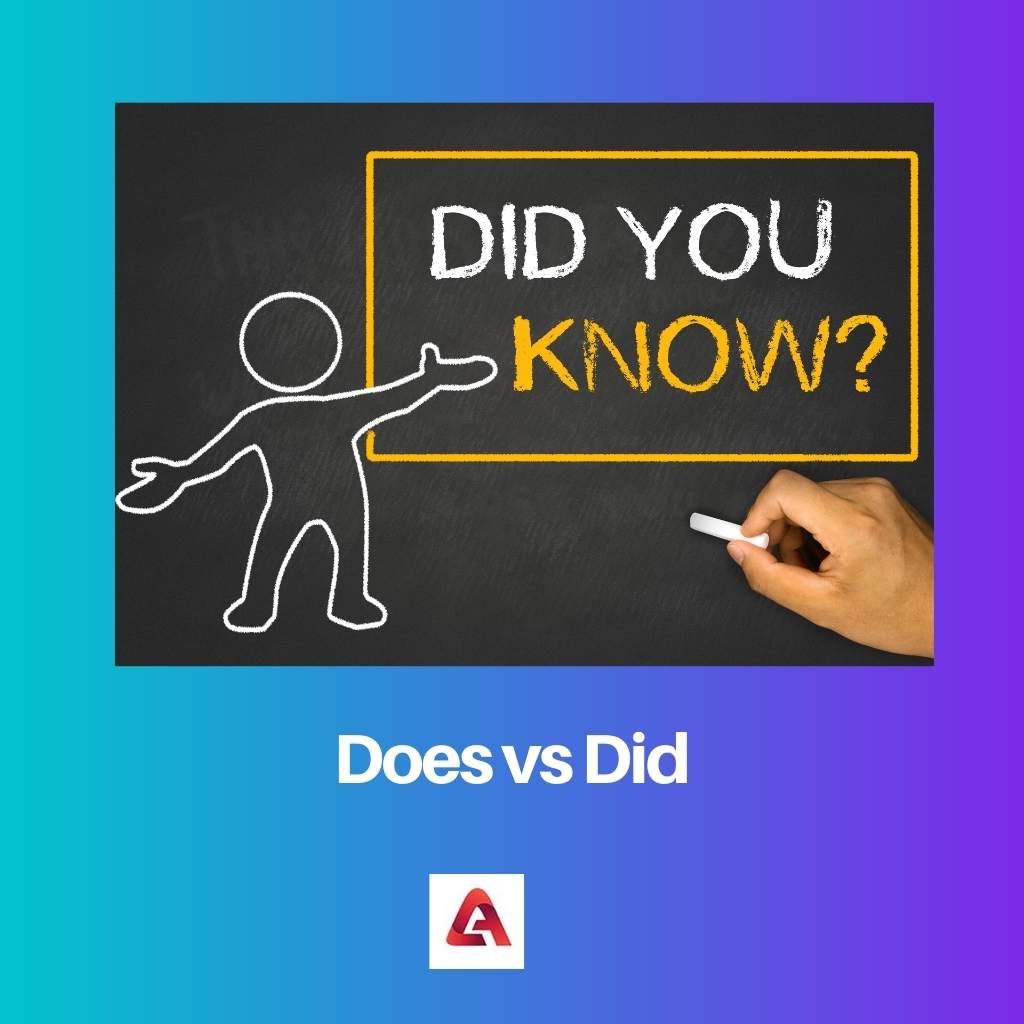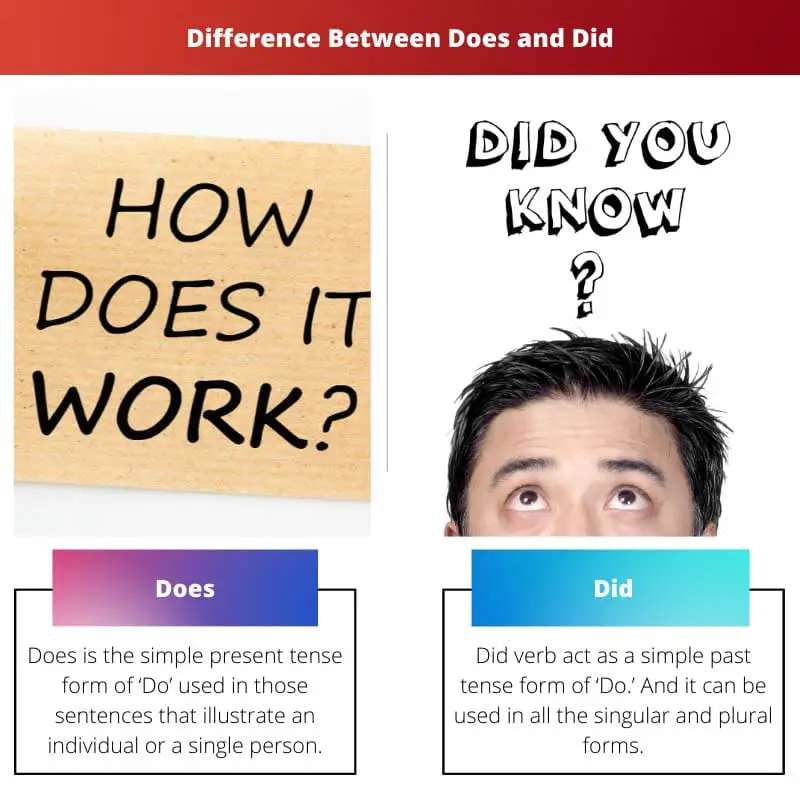English is straightforward if you know the use of grammar and know to put the correct verb in the sentence. In today’s world, English has become compulsory for communication in other countries.
Does and Did are the verbs used in English. Verbs are those words that help us to illustrate an activity, situation, or incident in a sentence in which it is used.
Key Takeaways
- Does is the present tense form of the verb “do”, used to describe actions that are currently happening or habitual actions.
- Did is the past tense form of the verb “do”, used to describe actions that have already happened in the past.
- While both forms of the verb “do” refer to actions, they differ in their tense and the time frame in which the actions occur.
Does vs. Did
The difference between Does and Does is that when used as a verb in a sentence, it indicates a singular form or is used for considering an individual. Whereas the verb Did, the function is different as Did verb can be used for any form, whether it is for one or many forms.

Does is the simple present tense form of ‘Do,’ used in sentences that illustrate an individual or a single person. And when considering the third person in a sentence.
Did is another form of ‘Do,’ but it can be used in all the singular and plural forms. Did the verb act as a simple past tense form of ‘Do’? This is used in the first, second as well as third person.
Comparison Table
| Parameters of Comparison | Does | Did |
|---|---|---|
| Definition | Does the simple present tense form of ‘Do’ in those sentences illustrate an individual or a single person? | Did the verb act as a simple past tense form of ‘Do.’ And it can be used in all the singular and plural forms. |
| Perspective | Third-person perspective. | First, the second person, as well as the third person. |
| Verb type | Does act as an auxiliary verb. | Did also acts as an auxiliary verb. |
| Tense form | Simple present tense form of the verb ‘Do.’ | Simple past tense form of the verb ‘Do.’ |
| The singular and plural usage | It can only be used in those sentences which consider only individual forms. | It can be used both in singular and plural forms. |
| Sentence usage | 1. Does it make you feel good? 2. It does make sense. 3. Does it cost to adopt a child? | 1. She did it correctly. 2. Did she know about you and Jina? 3. Did you have dinner? |
| Depiction | It mainly depicts questioning in sentences. | It also depicts questioning in sentences. |
What is Does?
Does is an auxiliary verb which means it depicts uncertainty, questioning, and probability in the sentences in which it is used. The original form of Does is the verb ‘Do,’ and ‘does’ is its simple present form.
Does is mainly used in those sentences in which we consider an individual or only one specific person. It is used in describing current situations or circumstances.
Some of the examples of the verb Does are as follows:
- Does it feel good to hurt someone?
- Vicky does not like to walk around without shoes.
- She does exercises.
- Vivek does need a servant currently.
What is Did?
Did is another form of the verb ‘Do,’ and it is also used for questioning someone. But it works in the past tense form or asking someone about those things or situation which has happened already.
Did work as a primary form in the sentence in which it is used as a helping verb. It acts as a helping verb because it can be used with other verbs as a parent verb. It cannot be used to illustrate things that are happening currently.
Some of the examples are as follows:
- Did you see that thief last night?
- You did it correctly.
- How did she come?
- I did my assignment in the library of my school.

Main Differences Between Does and Did
- Does shows only the third-person perspective, whereas, Did show all three views that are first, second, and third person.
- Did is used only before the concern or the matter of the sentence, but Does can be used in any question form in the present form situation.

- https://www.sciencedirect.com/science/article/pii/S0738059307000831
- https://journals.sagepub.com/doi/abs/10.1111/j.1467-9280.2009.02277.x